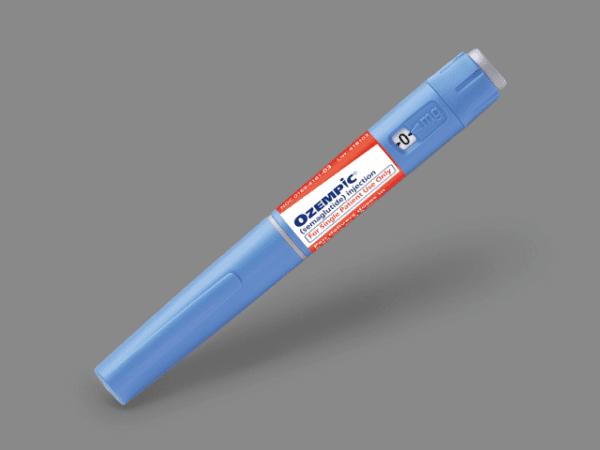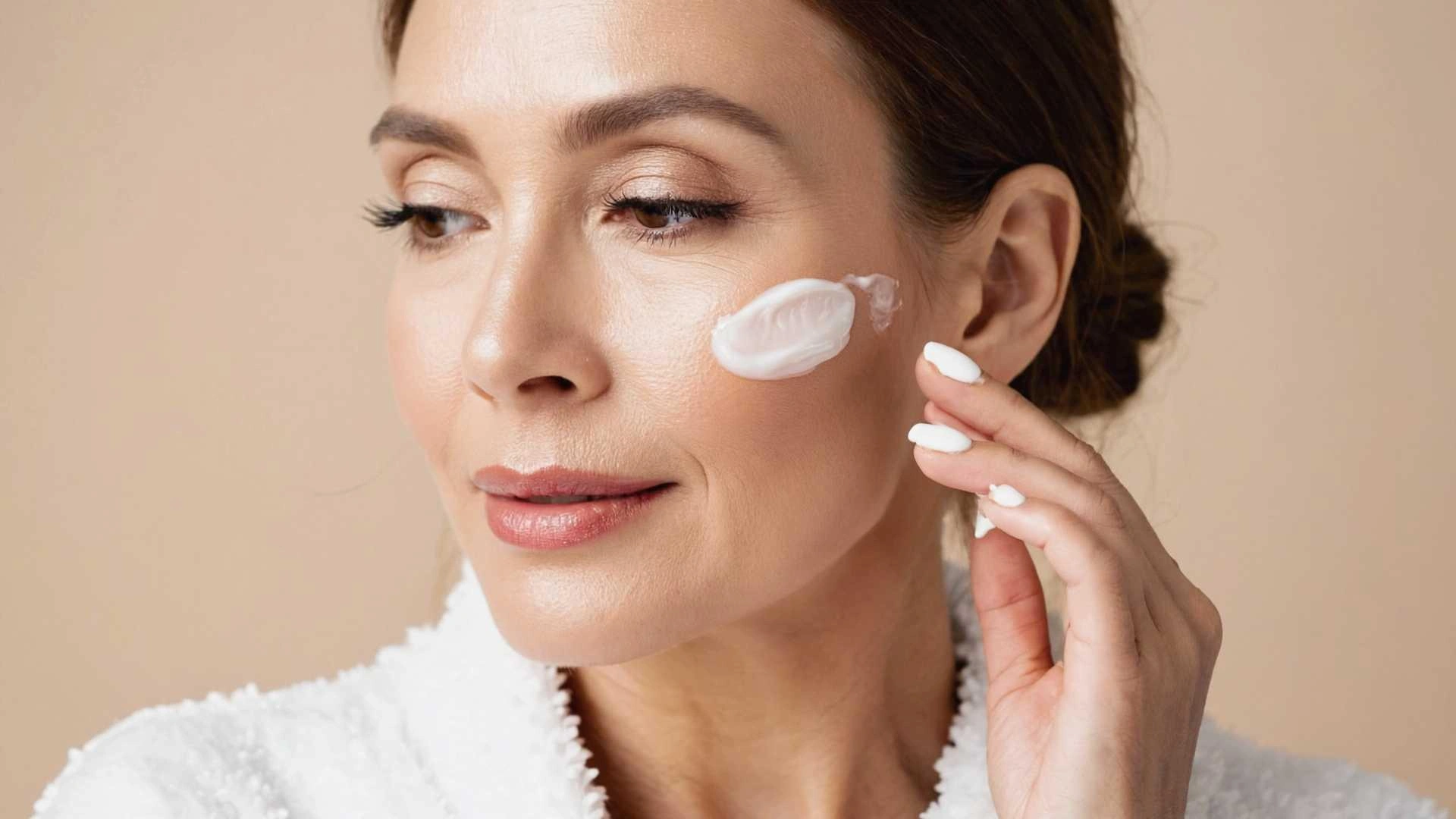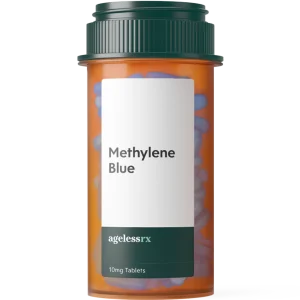Top Anti-Aging Tips for Sensitive Skin
Transform your mental health journey with our top practitioners. Speak with a provider today to see what treatment is right for you.
- Appointments any day of the week
- Licensed healthcare providers in your state
- 24/7 patient support
Sensitive skin is characterized by redness, itching, dryness, or a burning sensation in response to certain products or environmental factors. This type of skin requires special attention, especially when it comes to anti-aging treatments that can sometimes be harsh.
Receive a personalized treatment plan from a medical provider after an online mental health assessment.
Characteristics of Sensitive Skin
Sensitive skin can react adversely to a variety of triggers, ranging from environmental factors like pollution and weather changes to specific ingredients in skincare products. Individuals with sensitive skin often experience a compromised skin barrier, making them more susceptible to irritation and inflammation. Recognizing these characteristics can help in selecting suitable products and routines that alleviate rather than exacerbate these issues.
How Aging Affects Sensitive Skin
Aging skin tends to lose its elasticity and moisture, making fine lines and wrinkles more apparent. For those with sensitive skin, the natural aging process can be more pronounced due to an increased likelihood of irritation and dryness. Understanding how aging affects sensitive skin is crucial in developing a skincare routine that addresses both concerns without causing further sensitivity.
The Link Between Skin Sensitivity and Aging
There is a significant overlap between the factors that cause skin sensitivity and those that contribute to aging. Both can be influenced by genetic predisposition, environmental stressors, and lifestyle choices. A comprehensive understanding of these links can aid in creating a proactive skincare strategy that minimizes the signs of aging while catering to the needs of sensitive skin.
Choosing the Right Anti-Aging Products
Selecting the appropriate anti-aging products for sensitive skin involves a careful balance between efficacy and gentleness. The right ingredients can make a significant difference in maintaining healthy, youthful skin without irritation.
Best Anti-Aging Ingredients for Sensitive Skin
When selecting anti-aging products for sensitive skin, look for ingredients that are both effective and gentle. Here are some top picks:
- Hyaluronic Acid: This powerful humectant draws moisture into the skin, helping to plump up fine lines without causing irritation. Its ability to retain moisture makes it ideal for maintaining skin hydration and elasticity.
- Niacinamide (Vitamin B3): Known for its soothing properties, niacinamide can help reduce inflammation and improve skin texture. It also aids in managing acne and hyperpigmentation, which can be concerns for sensitive skin.
- Peptides: These amino acids support collagen production, promoting firmer skin without the harshness associated with some other anti-aging ingredients. They help strengthen the skin’s structure, reducing the appearance of fine lines.
- Ceramides: These are essential for maintaining the skin’s natural barrier and preventing moisture loss, which is crucial for sensitive skin. They help protect against environmental stressors while maintaining skin hydration.
Best Skincare Products for Sensitive Aging Skin
Choosing the right products involves considering formulations specifically designed for sensitive skin. Opt for those that are free from potential irritants like fragrances and alcohol.
- Cleansers: Use gentle, sulfate-free cleansers that effectively remove impurities without stripping the skin of its natural oils. Look for products that contain soothing ingredients like oat or chamomile.
- Serums: Incorporate serums that focus on hydration and calming. Serums with hyaluronic acid or peptides can provide targeted anti-aging benefits while ensuring skin comfort.
- Moisturizers: Select moisturizers that are fragrance-free and contain ceramides or niacinamide. These help to reinforce the skin barrier and provide necessary hydration without irritation.
Anti-Wrinkle Moisturizer for Sensitive Skin
A high-quality moisturizer is a must-have in any anti-aging skincare routine. Look for products labeled as “fragrance-free” and “non-comedogenic” to minimize the risk of irritation. Some top choices include:
- CeraVe PM Facial Moisturizing Lotion: With a combination of ceramides and hyaluronic acid, this moisturizer supports the skin barrier while providing essential hydration. It is designed to work overnight, enhancing skin repair processes.
- La Roche-Posay Toleriane Double Repair Face Moisturizer: Known for its gentle formulation, this moisturizer helps restore skin comfort and reduce redness. Its prebiotic thermal water content soothes and strengthens the skin.
Best Anti-Aging Cream for Sensitive Skin
When it comes to choosing an anti-aging cream, opt for formulas that are free from alcohol and artificial fragrances. These creams not only target wrinkles but also soothe and protect sensitive skin.
- Neutrogena Hydro Boost Gel-Cream: This fragrance-free, dye-free cream delivers a boost of hydration with hyaluronic acid. Its gel-based formula is lightweight yet effective in keeping the skin hydrated throughout the day.
- Olay Regenerist Micro-Sculpting Cream: Packed with peptides and niacinamide, this cream provides visible wrinkle results while being gentle on sensitive skin. It enhances skin elasticity and smoothness without irritation.
Building a Sensitive Skin Anti-Aging Routine
Creating a skincare routine that addresses both aging and sensitivity involves a few key steps:
Cleanse Gently
Start with a mild, sulfate-free cleanser to remove impurities without stripping the skin of its natural oils. This prepares your skin to absorb the benefits of your skincare products.
- Choosing the Right Cleanser: Select a cleanser that is specifically formulated for sensitive skin. Ingredients like aloe vera or chamomile can add a soothing effect, helping to calm any existing irritation.
- Cleansing Technique: Use lukewarm water and gentle, circular motions to cleanse your face. Avoid using rough washcloths or excessive scrubbing, as this can exacerbate sensitivity.
- Frequency of Cleansing: Limit cleansing to twice daily—morning and night—to avoid over-drying the skin. If your skin feels dry, consider skipping the morning cleanse and simply rinse with water.
Hydrate and Protect
After cleansing, apply a gentle hydrating serum or moisturizer to lock in moisture. During the day, always follow up with a broad-spectrum sunscreen to protect your skin from UV damage, which can accelerate aging.
- Layering Products: Apply your hydrating products in order of their consistency, from thinnest to thickest. This ensures maximum absorption and efficacy of each product.
- Importance of Sunscreen: Sunscreen is crucial for sensitive skin, as UV exposure can intensify both aging and sensitivity. Opt for mineral-based sunscreens with zinc oxide or titanium dioxide.
- Daytime vs. Nighttime Hydration: During the day, use a lightweight moisturizer that works well under makeup. At night, switch to a richer formulation to support skin repair.
Treat with Care
When incorporating anti-aging treatments such as retinoids or exfoliants, introduce them slowly to your routine to monitor how your skin reacts. Consider using them just once or twice a week initially.
- Starting with Retinoids: Retinoids can be effective but are often too harsh for sensitive skin. Begin with a low concentration and consider alternatives like bakuchiol, which offers similar benefits with less irritation.
- Exfoliating Safely: Use gentle exfoliants, such as lactic acid, which are less likely to cause irritation. Avoid physical exfoliants that can damage the skin barrier.
- Monitoring Reactions: Pay close attention to how your skin responds to new treatments. Discontinue use immediately if you notice redness, peeling, or discomfort.
Nighttime Nourishment
At night, focus on nourishing your skin with a rich, soothing moisturizer or cream. Look for products containing calming ingredients like chamomile or aloe vera to help repair and regenerate skin as you sleep.
- Choosing Night Creams: Night creams with ingredients like ceramides and peptides are ideal for nighttime repair. These ingredients work to fortify the skin barrier and encourage collagen production.
- Incorporating Facial Oils: Consider adding a facial oil with soothing properties, such as jojoba or rosehip oil, to enhance the skin’s overnight repair process.
- The Role of Sleep: Ensure you get adequate sleep to support skin regeneration. Quality rest helps reduce stress and allows your skin to repair and renew effectively.
Lifestyle Tips for Sensitive Skin
In addition to using the right products, lifestyle choices play a significant role in managing sensitive, aging skin.
Stay Hydrated
Drinking plenty of water helps maintain skin’s elasticity and hydration. Aim for at least eight glasses a day to keep your skin looking plump and youthful.
- Water Intake: Regular hydration aids in flushing out toxins and maintaining optimal skin function. Keep a water bottle handy to remind yourself to drink throughout the day.
- Hydration from Foods: Incorporate water-rich foods like cucumbers, watermelon, and oranges into your diet. These not only provide hydration but also essential vitamins and nutrients.
- Recognizing Dehydration: Be mindful of signs of dehydration, such as dry lips or fatigue, and increase your water intake accordingly.
Eat a Balanced Diet
A diet rich in antioxidants, vitamins, and healthy fats can support skin health from the inside out. Include plenty of fruits, vegetables, nuts, and fish in your diet to provide your skin with the nutrients it needs.
- Antioxidant-Rich Foods: Berries, green tea, and dark chocolate are excellent sources of antioxidants that combat free radicals responsible for aging.
- Essential Fatty Acids: Omega-3 fatty acids found in fish like salmon and flaxseeds can help maintain skin elasticity and reduce inflammation.
- Vitamins and Minerals: Ensure your diet is rich in vitamins C and E, which are vital for collagen production and skin protection. Consider supplements if necessary, but consult with a healthcare provider first.
Get your anxiety symptoms checked by online healthcare providers at MEDvidi from the comfort of your home.
Avoid Triggers
Identify and avoid environmental and product-based triggers that may cause flare-ups. Common culprits include extreme weather conditions, fragrances, and harsh chemicals.
- Environmental Factors: Protect your skin from extreme temperatures by dressing appropriately and using a humidifier during dry months.
- Product Awareness: Always read product labels and patch-test new items before full application. Stick to trusted brands known for their gentle formulations.
- Fragrance-Free Products: Opt for fragrance-free products to minimize the risk of irritation. Artificial fragrances can be a significant trigger for sensitive skin.
Get professional help for anxiety from the comfort of your home.
Manage Stress
Stress can exacerbate skin sensitivity and aging. Incorporate stress-reducing practices such as yoga, meditation, or deep breathing exercises into your daily routine to keep both your mind and skin calm.
- Mindfulness Practices: Engage in mindfulness activities like meditation or journaling to reduce stress levels. These practices can help balance your emotional well-being, reflecting positively on your skin.
- Physical Activity: Regular exercise not only reduces stress but also boosts circulation, improving skin health and appearance.
- Relaxation Techniques: Techniques such as deep breathing or progressive muscle relaxation can be done anywhere to help manage acute stress.
See a healthcare provider licensed in your state to get personalized anxiety treatment.
Conclusion
Caring for sensitive, aging skin requires a thoughtful approach, but with the right products and lifestyle habits, you can maintain healthy, youthful-looking skin. Remember to patch-test new products, be patient with your skin’s progress, and adjust your routine as needed. By prioritizing gentle, effective skincare, you can address the signs of aging while keeping your sensitive skin comfortable and radiant.
By following these anti-aging tips, you’ll be well on your way to achieving a glowing, youthful complexion without compromising your skin’s delicate nature. Consistency and patience are key—embrace a holistic approach to skincare that respects your skin’s unique needs.
Content

Take the first step today:
book an appointment to get your symptoms assessed and obtain a prescription online.













